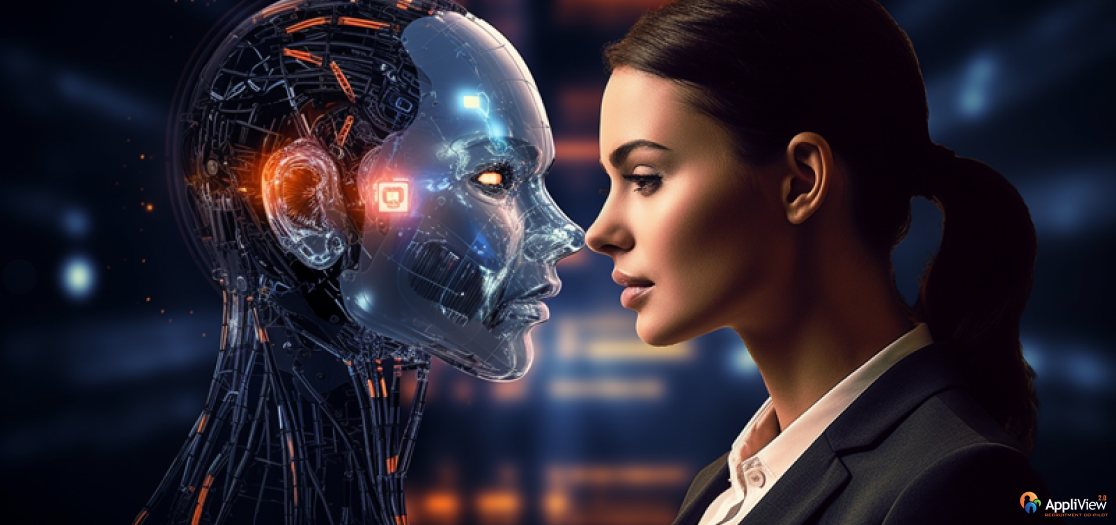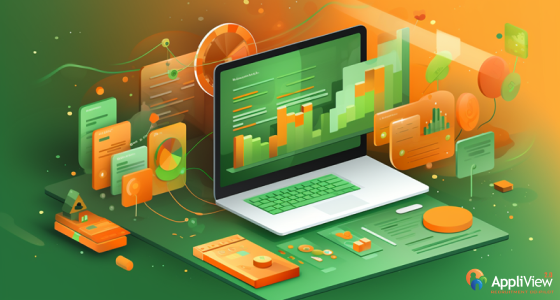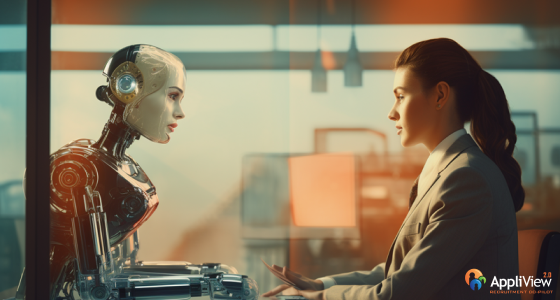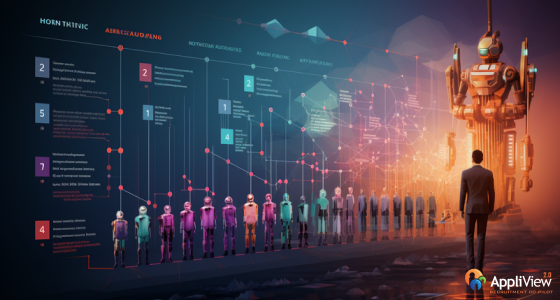Will Automation in HR Spell the End for Traditional HR Roles?
December 27, 2023

The integration of Artificial Intelligence (AI) and automation in HR practices is revolutionizing the way organizations manage their workforce. AI-powered tools are transforming various HR functions, such as recruitment, induction, performance management, and employee engagement. AI can identify qualified candidates, simplify onboarding and offboarding, provide performance management insights, and deliver personalized training content. The future of HR technology is promising, with AI enhancing personalization and employee experience, AI-driven decision-making, and the role of chatbots and virtual assistants. However, ethical concerns regarding data privacy and algorithmic bias must be addressed. HR professionals must adapt to the changing landscape to maximize the potential of automation.
Will Automation in HR Spell the End for Traditional HR Roles?
In today’s fast-paced business environment, technology continues to revolutionize numerous industries, including Human Resources (HR). The incorporation of Artificial Intelligence (AI) and automation into human resources (HR) practices is revolutionizing the way organizations manage their workforce. However, does this signal the end of conventional HR functions? In this blog, we will discuss the impact of automation on HR, its transformational trajectory, and the future of HR technology.
AI Introduction in HR Technology

The traditional HR department has long been tasked with a variety of responsibilities, including recruitment, induction, performance management, and employee engagement. However, the introduction of AI and automation technologies has significantly altered the HR landscape. Human resource technology, as it is commonly known, is at the vanguard of this revolution.
HR tech is more than just a buzzword; it represents a shift towards efficient and data-driven HR practices. Automation has the potential to streamline administrative tasks, enabling human resource professionals to focus on more strategic and value-added tasks.
The Transformational Journey
To comprehend the impact of automation on HR, it is essential to examine the journey thus far. Traditional HR roles were once primarily paper-based and administrative. However, with the advent of computerization and the internet, HR functions began to evolve. The administration of payroll and benefits migrated online, followed by applicant tracking systems (ATS) for recruitment.
With the development of AI and automation, the transformational journey gathered momentum. AI-powered tools now aid in candidate sourcing, initial interviews, and data analysis for improved recruiting decisions. HR is becoming a strategic partner in accomplishing business objectives; it is no longer limited to routine paperwork.
Key Areas Where AI Is Transforming HR
Various HR functions are being revolutionized by AI and automation:
Recruitment and Talent Acquisition : Algorithms propelled by artificial intelligence can identify qualified candidates by analyzing resumes and online profiles, drastically reducing the need for manual screening.

Employee Onboarding and Offboarding : Automation can simplify the onboarding process, assuring new hires have all necessary resources and information. It can also efficiently manage the offboarding procedure.
Performance Management and Feedback : AI tools can provide insight into employee performance, enabling human resource professionals to make data-driven decisions regarding promotions and training.
Learning and Development : Automation can deliver personalized training content to employees, enabling them to enhance their skills and maintain a competitive edge.
Employee Engagement and Wellness : Chatbots and virtual assistants can provide immediate support, enhancing employee engagement and well-being.
The future of HR technology
AI will continue to refine the personalization and employee experience by offering customized development plans, benefits, and career paths.
AI-Driven Decision-Making : AI algorithms will play a greater role in strategic decision-making, assisting HR professionals in making well-informed decisions.

The Role of Chatbots and Virtual Assistants : Chatbots will become more sophisticated, providing employees with real-time assistance and enhancing their experience.
Ethical Considerations in AI and HR : As AI assumes a larger role, ethical concerns regarding data privacy and algorithmic bias must be addressed.
Conclusion
The HR department is still an integral element of any organization, and technology exists to augment its capabilities, not to replace them. The key lies in adapting to the changing landscape and embracing HR technology as a means to enhance efficiency, decision-making, and employee experience. As businesses grow and change, it is crucial to remain abreast of HR technology trends and to maximize the potential of automation.
